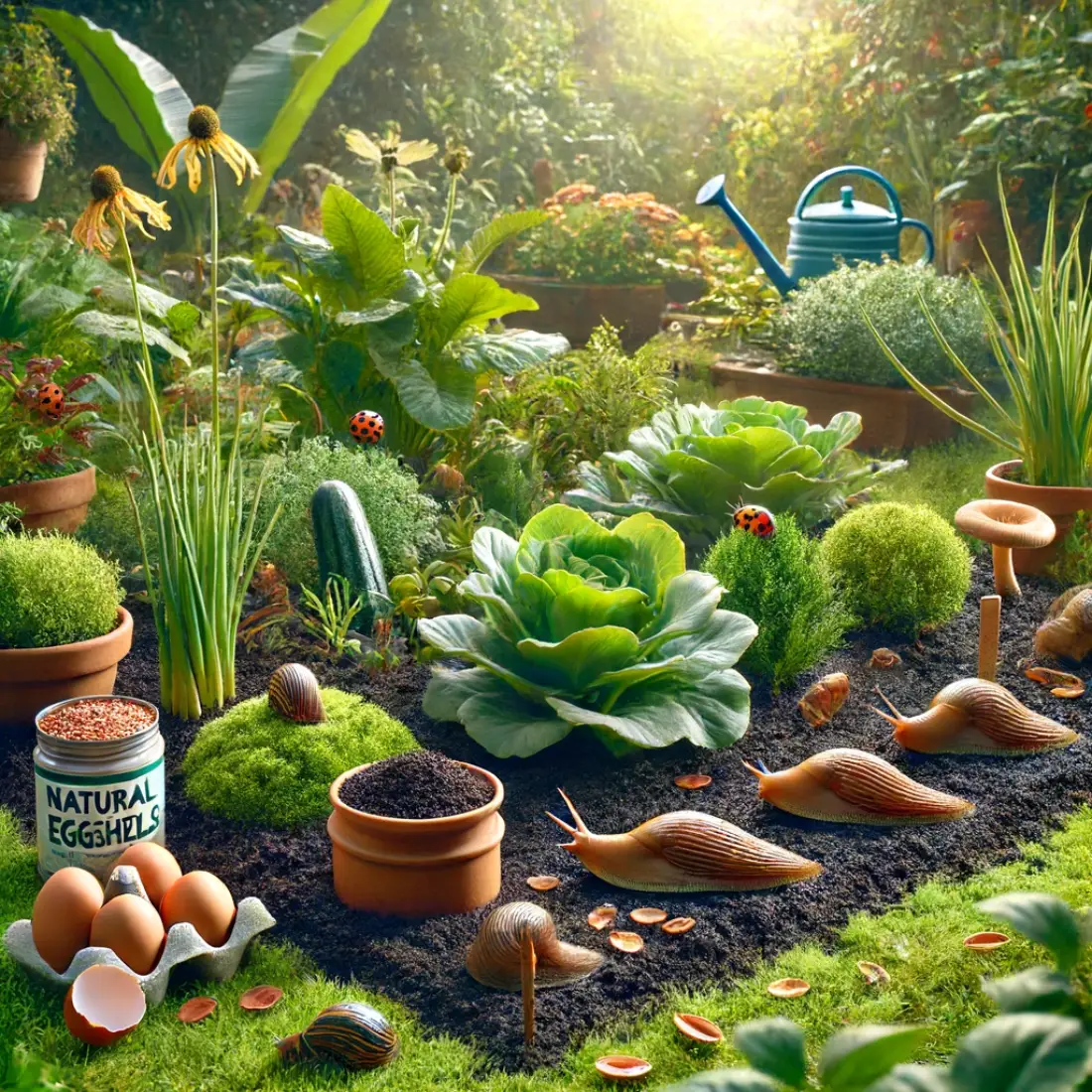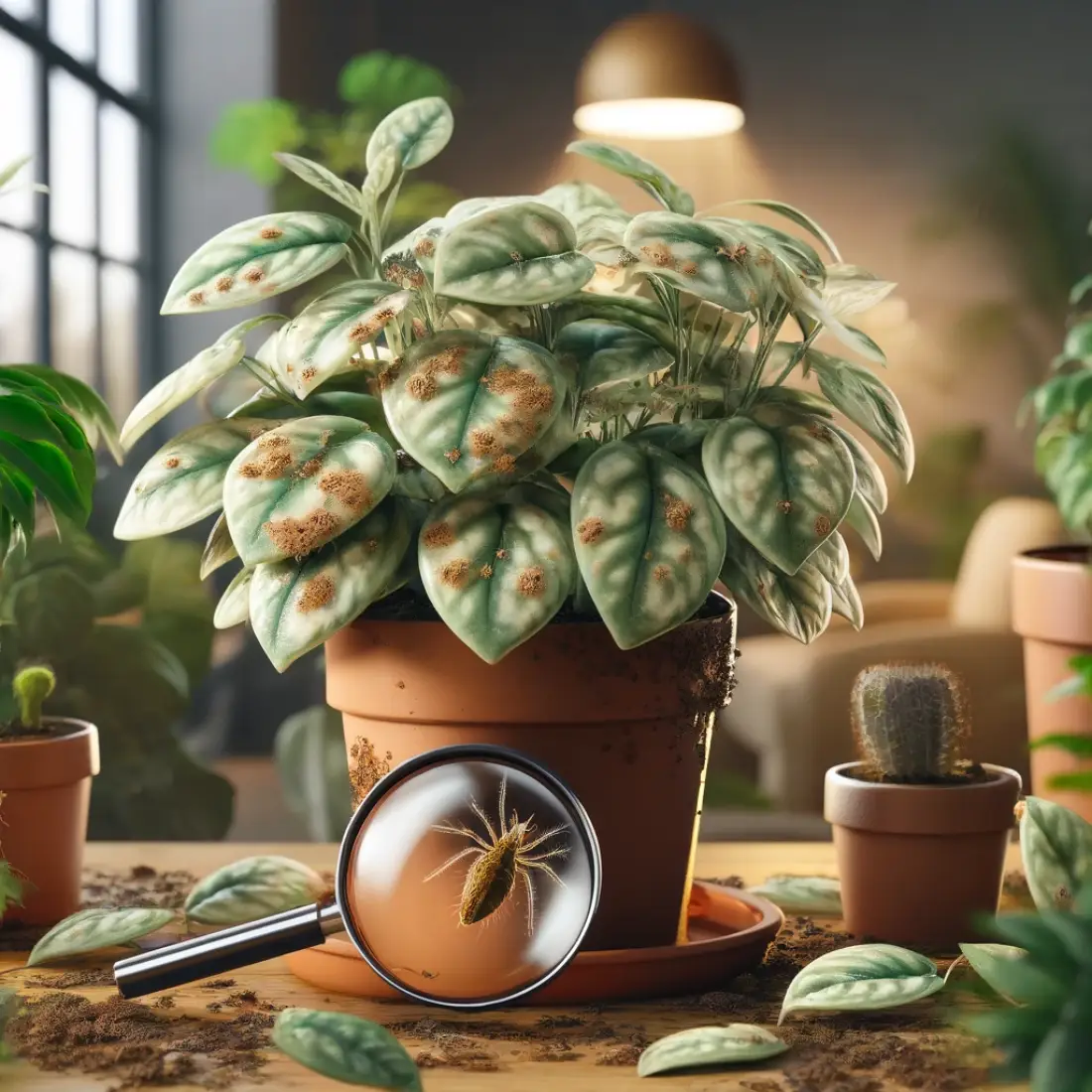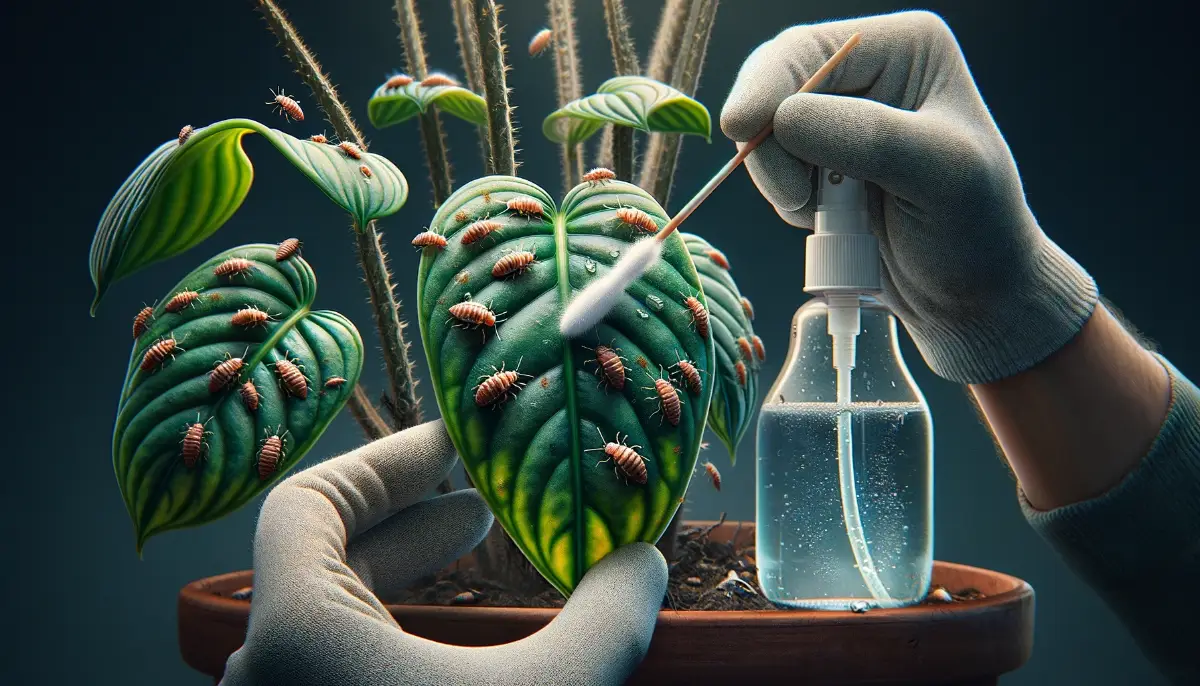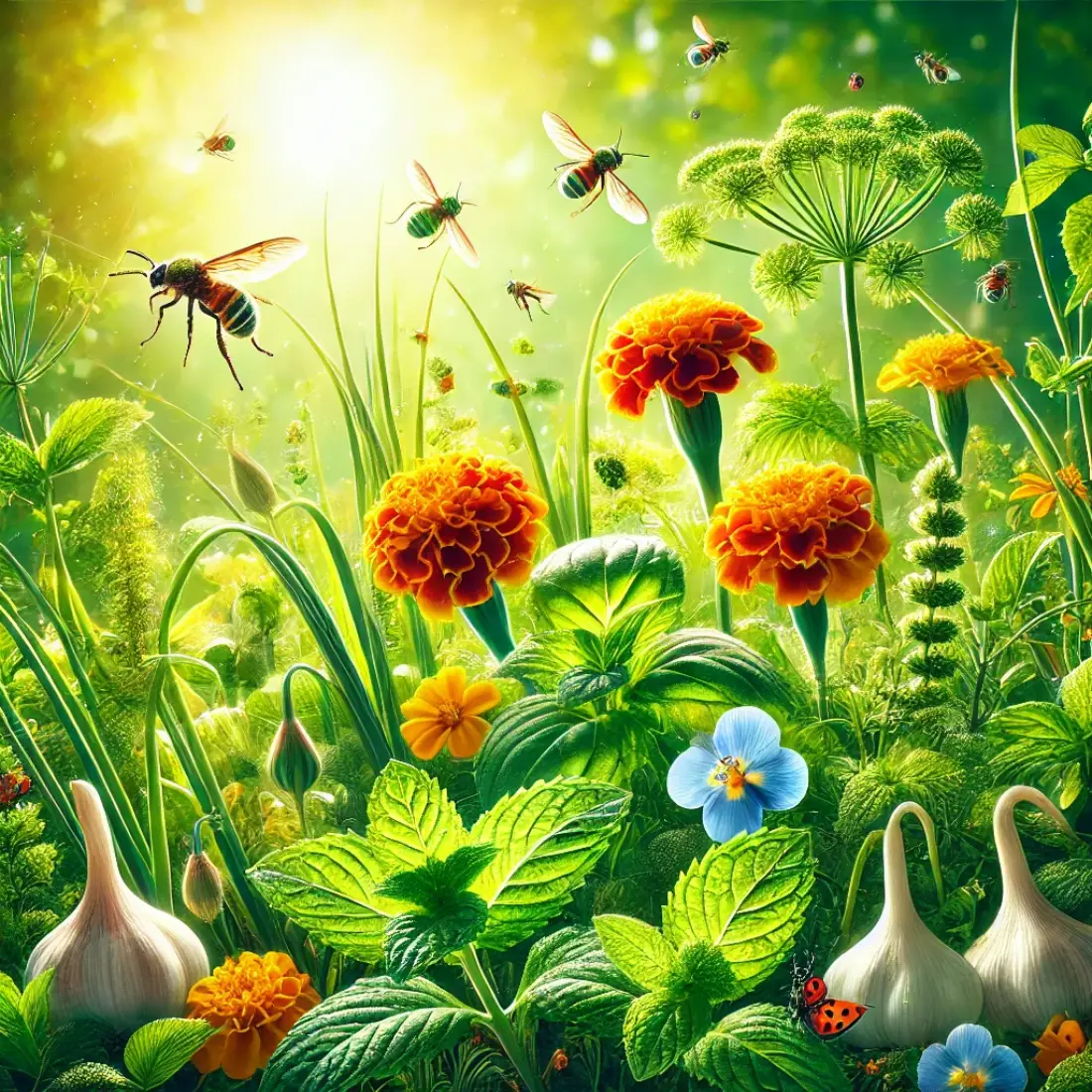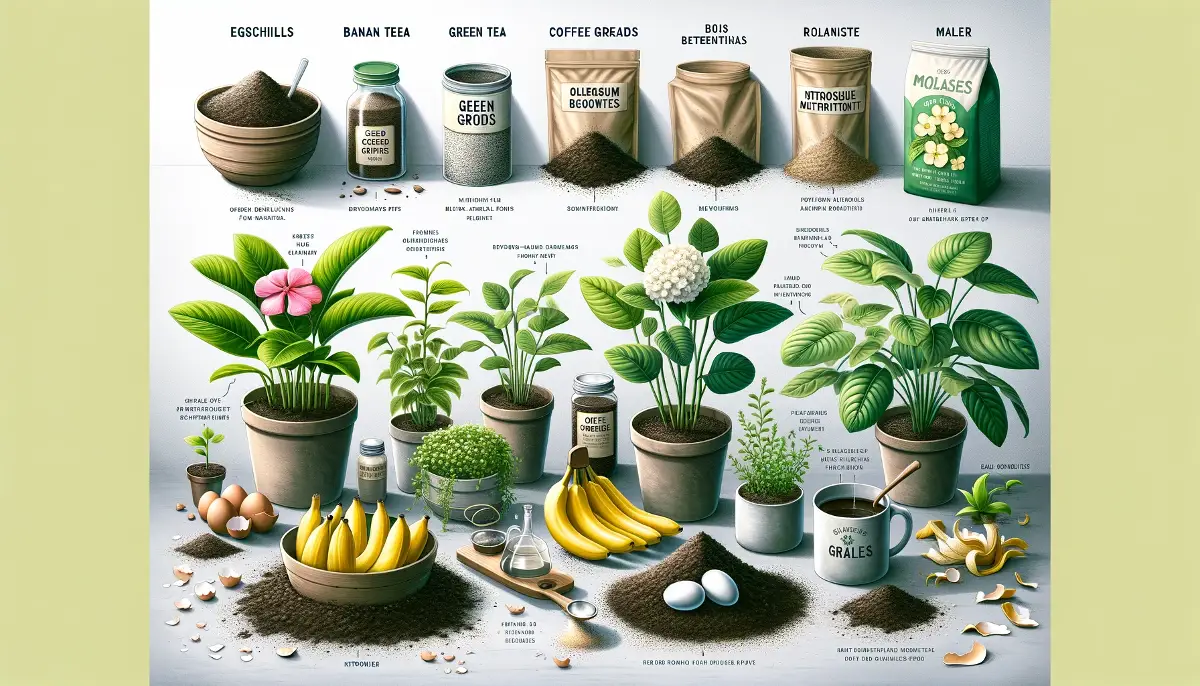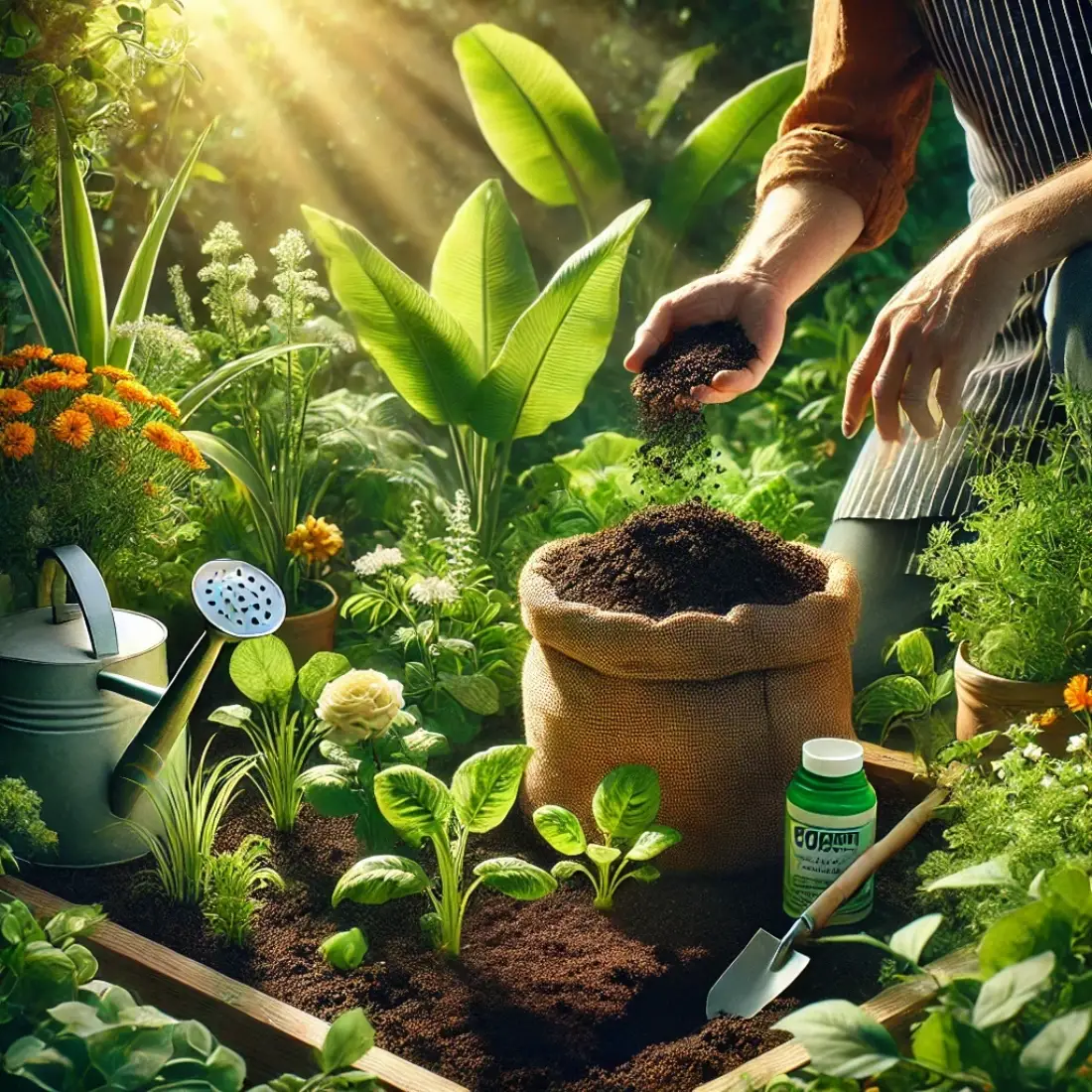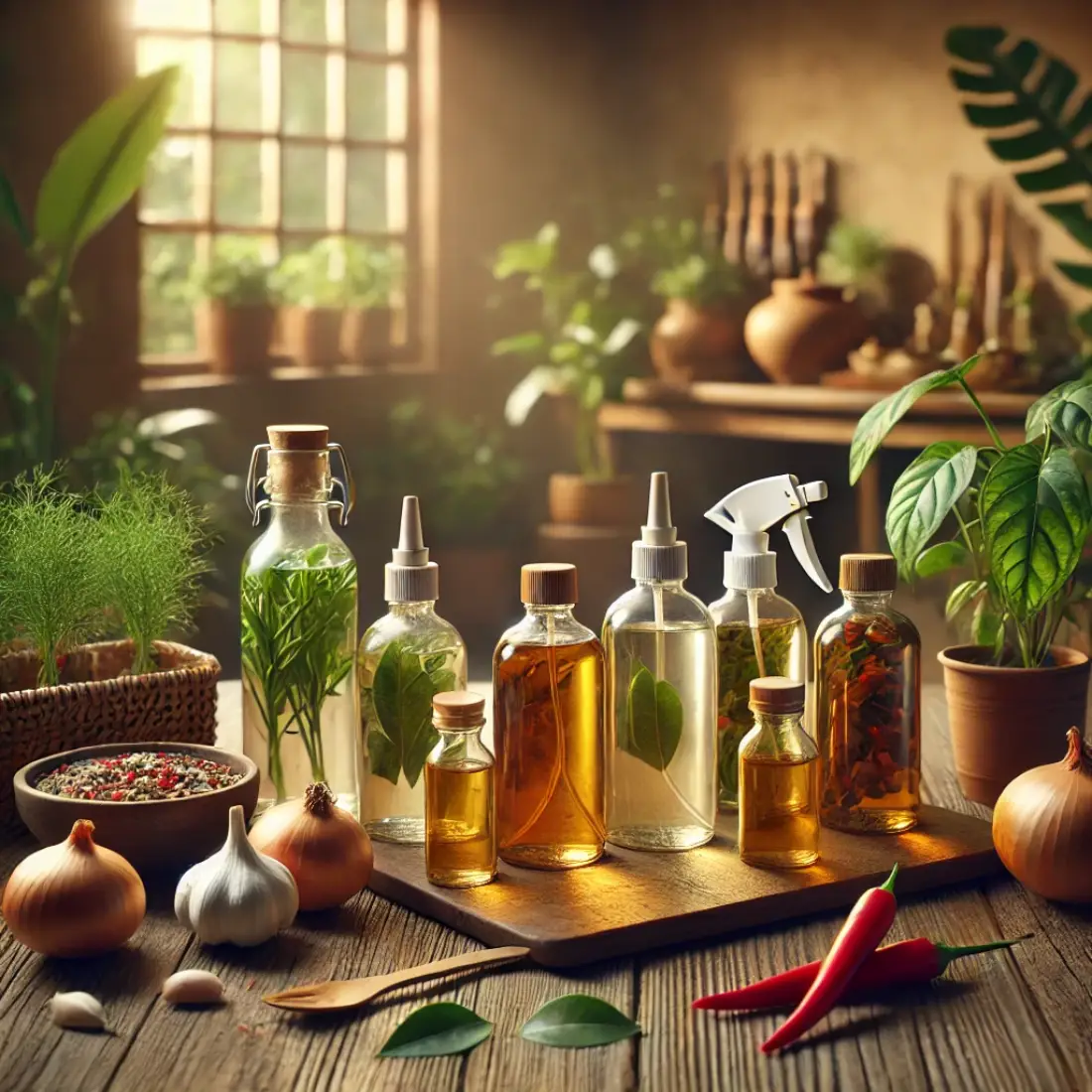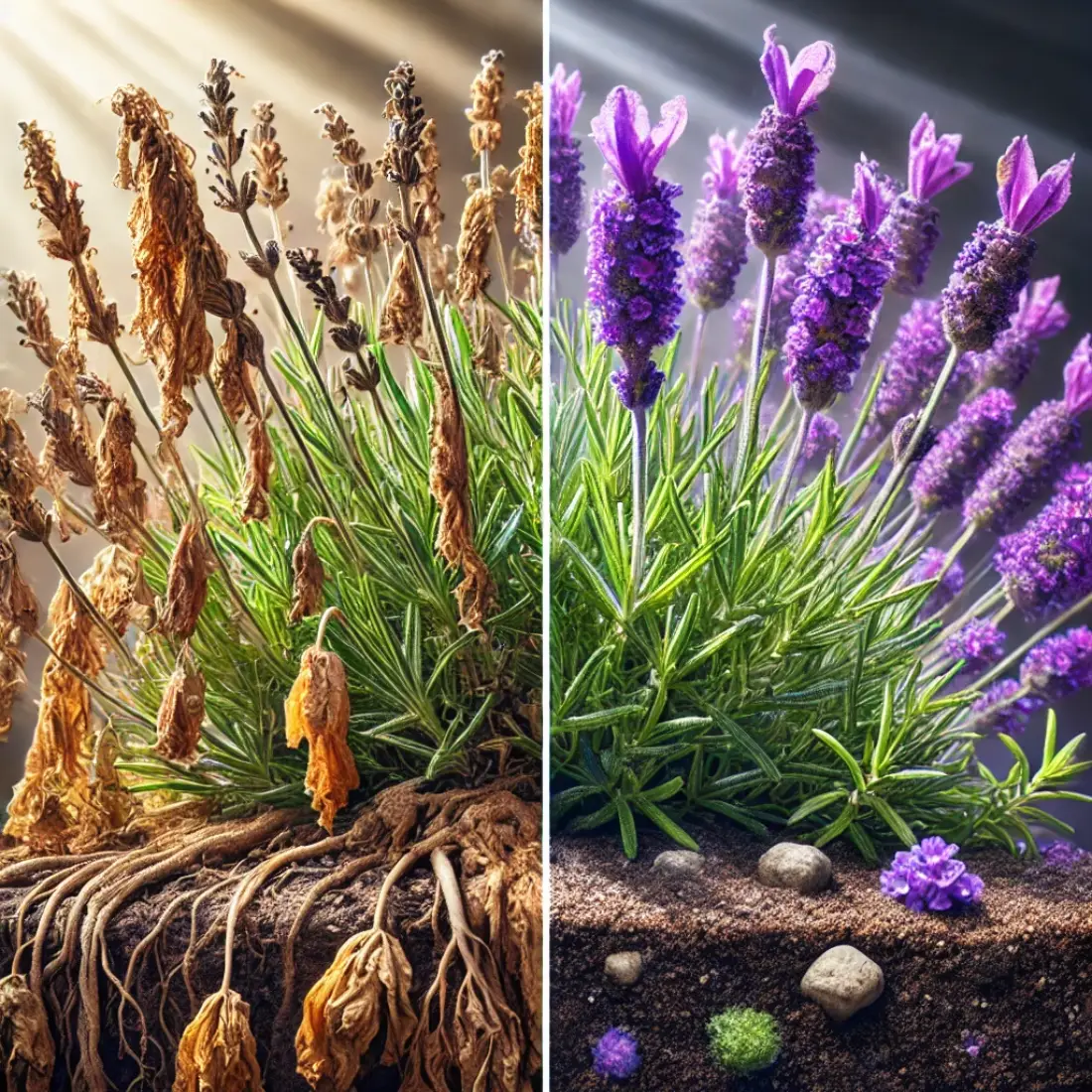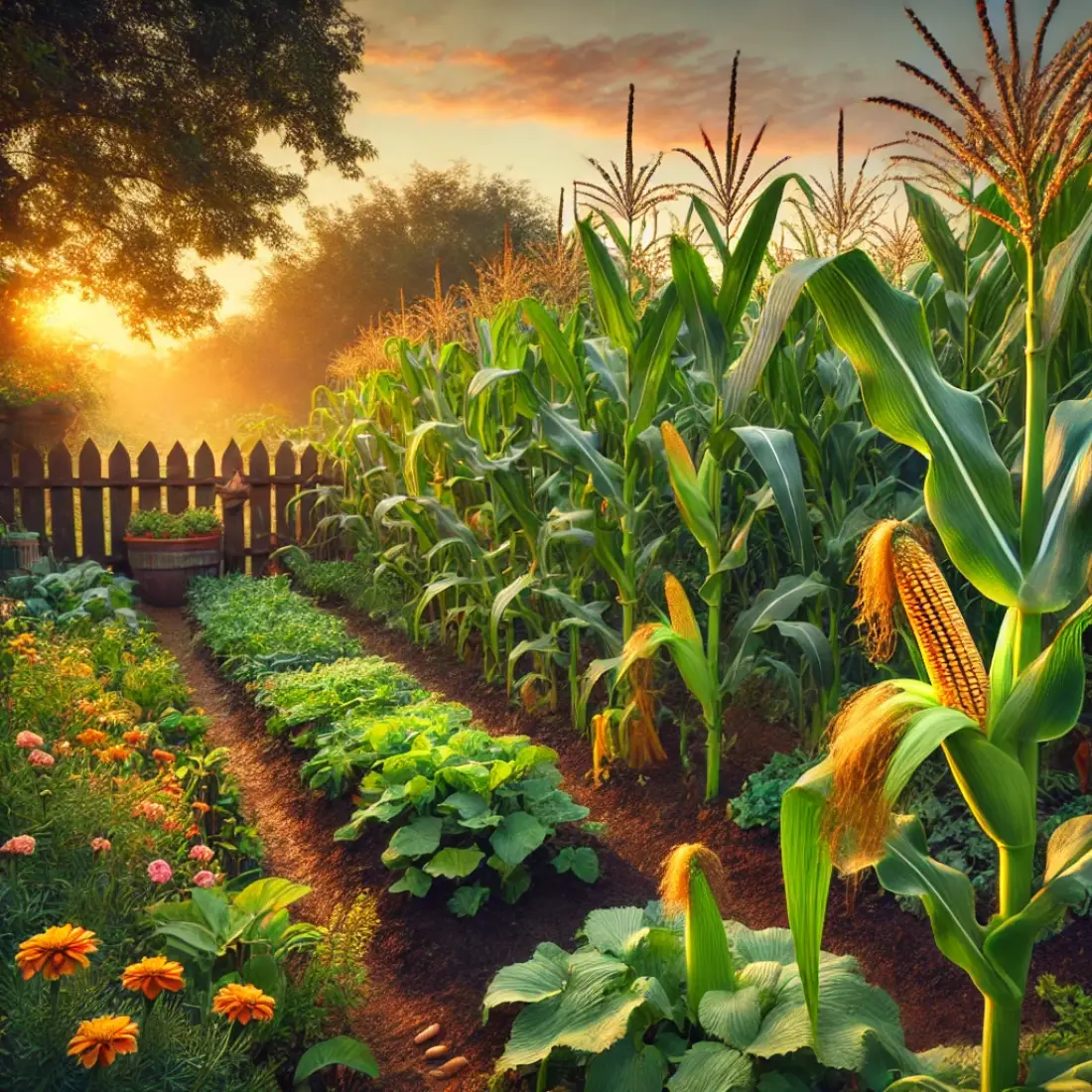Slugs can be a persistent nuisance in the garden, wreaking havoc on plants and vegetables by feeding on their leaves and stems. These slimy pests are particularly troublesome in damp and shaded areas, where they thrive and reproduce rapidly. While chemical solutions are available, many gardeners seek organic methods to protect their gardens without harming the environment or beneficial insects.
Organic slug control not only preserves the ecological balance of your garden but also ensures the safety of pets and children who might come into contact with treated areas.
Gardening experts and enthusiasts have shared numerous tips and tricks for organic slug control, emphasizing the importance of understanding slug behavior and utilizing natural deterrents. Whether you’re a seasoned gardener or a beginner, these approaches will help you create a slug-resistant garden without resorting to harmful chemicals.
Manual Removal
Manual removal is one of the simplest and most direct methods of controlling slugs in your garden. Although it can be time-consuming, it is highly effective when done consistently. Here’s how to tackle slugs manually:
Nighttime Collection
Slugs are nocturnal creatures, meaning they are most active at night when the garden is cooler and more humid. Here’s a step-by-step guide to nighttime collection:
- Preparation: Equip yourself with a flashlight or headlamp, a pair of gloves, and a bucket of soapy water.
- Timing: Head out to your garden after dusk or just before dawn, as this is when slugs are most active and visible.
- Search: Use the flashlight to inspect your plants, especially the undersides of leaves and damp areas where slugs like to hide.
- Collection: Pick the slugs off the plants and drop them into the bucket of soapy water. The soap will kill the slugs quickly.
- Frequency: Repeat this process several times a week to significantly reduce the slug population.
Daytime Hiding Spots
Slugs hide during the day in cool, damp places. You can take advantage of this behavior to collect them more efficiently.
- Create Hiding Spots: Place boards, pieces of cardboard, or upturned flower pots in your garden. These will attract slugs looking for a daytime refuge.
- Inspection: During the day, check under these hiding spots and manually remove any slugs you find.
- Disposal: Again, drop the collected slugs into a bucket of soapy water to dispose of them.
Disposal Methods
Once collected, there are several ways to dispose of the slugs humanely:
- Soapy Water: As mentioned, dropping slugs into soapy water is a quick and effective method.
- Seal and Trash: Place the slugs in a sealed plastic bag and dispose of them in the trash. This method ensures they don’t escape back into the garden.
Manual removal is a straightforward approach to slug control, but it requires regular effort and vigilance. By consistently removing slugs from your garden, you can significantly reduce their numbers and minimize the damage they cause to your plants.
Barriers and Traps
Creating physical barriers and traps is an effective and organic way to control slugs in your garden. These methods prevent slugs from reaching your plants and can significantly reduce their numbers over time.
Copper Tape
Copper tape acts as a natural deterrent for slugs. When slugs come into contact with copper, it causes a reaction that gives them a mild electric shock, discouraging them from crossing the barrier.
- Application: Apply copper tape around the rims of pots, raised garden beds, or directly around the base of plants. Make sure the tape is at least 2 inches wide for maximum effectiveness.
- Maintenance: Regularly check the tape to ensure it is free of dirt and debris, which can reduce its effectiveness.
Eggshells and Diatomaceous Earth
Crushed eggshells and diatomaceous earth are abrasive materials that can deter slugs from crossing them.
- Eggshells: Crush eggshells into small pieces and spread them around the base of plants. The sharp edges deter slugs and can also add calcium to the soil.
- Diatomaceous Earth: Sprinkle a layer of diatomaceous earth around plants. This fine powder is made from fossilized algae and is very abrasive to slugs.
Beer Traps
Beer traps are a popular and effective method for attracting and drowning slugs.
- Setup: Bury a shallow dish or container in the ground so that the rim is level with the soil surface. Fill the container with beer. Slugs are attracted to the yeast in the beer, crawl in, and drown.
- Maintenance: Check and refill the traps regularly, especially after rain, to ensure they remain effective.
Grapefruit Traps
Using grapefruit halves as traps is another organic method to control slugs.
- Setup: Cut a grapefruit in half, eat the fruit, and place the empty halves upside down in your garden. Slugs will be attracted to the moist, acidic environment and gather under the grapefruit.
- Collection: Check the grapefruit halves in the morning, remove the slugs, and dispose of them.
By using these barriers and traps, you can create a hostile environment for slugs without relying on chemical pesticides. Regularly maintaining and combining these methods will help keep your garden slug-free and healthy.
Natural Predators
Encouraging natural predators in your garden is an effective and environmentally friendly way to control slugs. By creating a habitat that attracts and supports these beneficial creatures, you can reduce slug populations naturally.
Birds
Birds are among the most effective predators of slugs. Attracting a variety of birds to your garden can significantly reduce the slug population.
- Bird Feeders and Baths: Install bird feeders and baths to attract birds to your garden. Ensure there is a fresh supply of water and food to keep them coming back.
- Shelter: Plant trees and shrubs that provide nesting sites and shelter for birds.
- Native Plants: Use native plants to attract local bird species that are adapted to your area.
Frogs and Toads
Frogs and toads are natural slug predators that can be attracted to your garden with the right conditions.
- Ponds and Water Features: Create a small pond or water feature to provide a habitat for frogs and toads. Ensure the pond has shallow areas and plenty of vegetation.
- Shelter: Place logs, rocks, and leaf piles around the garden to provide hiding spots and shelter.
- Moist Environment: Maintain a moist garden environment, as frogs and toads thrive in damp conditions.
Hedgehogs
Hedgehogs are excellent slug hunters and can be attracted to your garden by providing a safe and welcoming habitat.
- Hedgehog Houses: Place hedgehog houses in quiet, sheltered areas of the garden. These can be purchased or homemade from wood and other natural materials.
- Hedgehog Highways: Ensure there are gaps in fences and walls to allow hedgehogs to move freely between gardens.
- Food and Water: Provide a shallow dish of water and occasionally leave out cat or dog food (not fish-based) to attract hedgehogs.
Ground Beetles
Ground beetles are beneficial insects that prey on slugs and other garden pests.
- Mulch and Leaf Litter: Maintain mulch and leaf litter around plants to provide habitat for ground beetles.
- Rocks and Logs: Place rocks and logs in the garden to create hiding spots for ground beetles.
- Avoid Pesticides: Minimize or avoid the use of chemical pesticides, which can harm ground beetles and other beneficial insects.
Plant Companions
Using plant companions is an effective organic method to deter slugs from your garden. Certain plants naturally repel slugs due to their scent, texture, or toxicity, making them excellent allies in your gardening efforts. Here are some plants that can help keep slugs at bay:
Aromatic Herbs
Aromatic herbs are known for their strong scents, which can deter slugs. Plant these herbs around your garden to create a natural barrier.
- Rosemary: Its pungent aroma is disliked by slugs. Plant rosemary near susceptible plants.
- Thyme: This herb is not only a great culinary addition but also repels slugs.
- Mint: Planting mint can help keep slugs away, but be cautious as mint can spread aggressively.
Alliums
Plants in the allium family, such as garlic, onions, and chives, have a strong smell that slugs find unappealing.
- Garlic: Planting garlic cloves around your garden can help deter slugs. Additionally, garlic can be used to make a repellent spray.
- Onions: Onions can be interplanted with other vegetables to protect them from slugs.
- Chives: Not only do chives repel slugs, but they also attract beneficial insects.
Marigolds
Marigolds are known for their pest-repellent properties. While they attract beneficial insects, their strong scent can deter slugs.
- French Marigolds: These are particularly effective in repelling slugs and can be planted around the perimeter of your garden.
- Pot Marigolds (Calendula): These also work well in deterring slugs and add a splash of color to your garden.
Nasturtiums
Nasturtiums can act as a trap crop, attracting slugs away from other plants.
- Planting Tips: Plant nasturtiums around the edges of your garden to lure slugs away from more valuable crops.
- Dual Purpose: Nasturtiums also attract beneficial insects and can improve the health of neighboring plants.
Fennel
Fennel has a strong scent that can deter slugs and many other pests. It can be planted around the garden to create a protective barrier.
- Placement: Plant fennel in strategic locations where slug activity is high.
- Caution: Fennel can inhibit the growth of some plants, so it should be placed carefully.
Mulch and Watering Practices
Proper mulch and watering practices are crucial for creating an environment that deters slugs and promotes healthy plant growth. Here’s how to use these techniques effectively:
Using Rough Mulch
Mulch can serve as a physical barrier that makes it difficult for slugs to move through the garden. Choosing the right type of mulch is key.
Types of Rough Mulch:
- Straw: Straw creates a rough, dry surface that is difficult for slugs to traverse. Spread a layer of straw around the base of plants to deter slugs.
- Wood Chips: Coarse wood chips are another effective mulch. They not only deter slugs but also help retain soil moisture and suppress weeds.
- Gravel: Using gravel as mulch around plants provides a tough, gritty surface that slugs avoid. It also adds a decorative element to the garden.
Application Tips:
- Apply mulch in a thick layer (about 2-3 inches) around plants, ensuring it does not touch the plant stems directly to prevent rot.
- Replenish the mulch regularly, especially after heavy rain or wind, to maintain its effectiveness.
Watering in the Morning
The timing of watering can significantly impact slug activity in your garden.
Morning Watering:
- Reduced Moisture: Watering in the morning allows the soil surface to dry by evening, creating a less favorable environment for slugs, which prefer moist conditions.
- Plant Health: Early watering provides plants with moisture during the day when they are actively photosynthesizing, enhancing their growth and resilience.
Watering Techniques:
- Drip Irrigation: Using drip irrigation or soaker hoses delivers water directly to the plant roots, minimizing surface moisture and reducing slug habitat.
- Avoid Overwatering: Ensure that you do not overwater your garden, as consistently wet soil attracts slugs. Monitor soil moisture and water only when necessary.
Combining Mulch and Watering Practices
Combining the use of rough mulch and proper watering practices can create a robust defense against slugs.
Integrated Approach:
- Mulch Application: Apply a layer of rough mulch after watering in the morning. This keeps the soil moist at the roots while maintaining a dry surface that deters slugs.
- Consistent Routine: Establish a routine of morning watering and regular mulching to maintain a consistently slug-unfriendly environment.
Homemade Sprays
Using homemade sprays is an effective and organic way to deter slugs from your garden. These sprays are easy to make with common household ingredients and can be applied directly to plants and soil to keep slugs at bay. Here are a few popular homemade sprays:
Garlic Spray
Garlic is a natural slug deterrent due to its strong odor and taste. A garlic spray can be made easily and used to protect your plants.
Ingredients:
- 2 bulbs of garlic
- 1 quart (1 liter) of water
- A few drops of liquid dish soap (optional)
Instructions:
- Crush the garlic bulbs and add them to a quart of water.
- Let the mixture sit for at least 24 hours.
- Strain the mixture to remove garlic pieces.
- Add a few drops of liquid dish soap to help the spray adhere to plant leaves.
- Pour the mixture into a spray bottle.
- Spray the solution on and around plants, focusing on areas where slugs are commonly found.
Coffee Spray
Coffee grounds and coffee spray are effective in deterring slugs due to the caffeine content, which is toxic to them.
Ingredients:
- 2 cups of used coffee grounds
- 1 quart (1 liter) of water
Instructions:
- Brew a strong pot of coffee and let it cool.
- Mix the coffee with water in a spray bottle.
- Spray the mixture around the base of plants and directly on any slugs you find.
Epsom Salt Spray
Epsom salt is a natural deterrent for slugs and also provides magnesium, which can benefit plant growth.
Ingredients:
- 2 tablespoons of Epsom salt
- 1 quart (1 liter) of water
Instructions:
- Dissolve the Epsom salt in water.
- Pour the solution into a spray bottle.
- Spray the mixture on the soil and around the base of plants.
Vinegar Spray
Vinegar can be used to deter slugs, but it must be used carefully as it can harm plants if applied directly.
Ingredients:
- 1 part white vinegar
- 1 part water
Instructions:
- Mix equal parts of vinegar and water in a spray bottle.
- Spray the solution on slugs directly or around the edges of garden beds to create a barrier.
- Avoid spraying directly on plants, as vinegar can damage plant tissues.
Physical Barriers
Physical barriers are an effective and organic way to keep slugs away from your garden plants. These barriers can prevent slugs from reaching their preferred feeding sites, thereby protecting your plants without the need for chemical pesticides. Here are some effective physical barriers:
Slug Collars
Slug collars are protective barriers placed around the base of plants to prevent slugs from climbing up and damaging them.
Materials Needed:
- Plastic or metal sheets
- Scissors or tin snips
- Stakes or pegs (optional for securing)
Instructions:
- Cut the plastic or metal sheets into strips about 3-4 inches wide.
- Form a ring with the strip and place it around the base of the plant.
- Secure the ends together, and if necessary, use stakes or pegs to hold the collar in place.
- Ensure the collar is slightly buried into the soil to prevent slugs from crawling underneath.
Copper Tape
Copper tape creates a barrier that slugs are reluctant to cross due to a mild electric charge created when they touch the copper.
Materials Needed:
- Copper tape
- Scissors
Instructions:
- Clean the surface where you will apply the copper tape to ensure it adheres properly.
- Cut the copper tape to the desired length.
- Apply the tape around the rims of pots, garden beds, or directly on the soil around plants.
- Check the tape regularly to ensure it remains in place and replace it if necessary.
Gritty Barriers
Gritty materials create an uncomfortable surface for slugs to cross, effectively deterring them.
Materials Needed:
- Crushed eggshells
- Diatomaceous earth
- Sand or gravel
Instructions:
- Collect and crush eggshells into small, sharp pieces.
- Sprinkle a generous layer of crushed eggshells, diatomaceous earth, sand, or gravel around the base of plants.
- Reapply after rain or watering to maintain the barrier’s effectiveness.
Sharp Mulch
Mulching with sharp materials can create a barrier that slugs find difficult to cross.
Materials Needed:
- Pine needles
- Straw
- Wood chips
Instructions:
- Spread a thick layer (about 2-3 inches) of pine needles, straw, or wood chips around plants.
- Ensure the mulch is evenly spread and not touching plant stems to prevent rot.
- Replenish the mulch periodically, especially after heavy rain.
FAQs on Organic Slug Control in the Garden
What are the best natural predators of slugs?
Natural predators of slugs include birds, frogs, toads, hedgehogs, and ground beetles. Attracting these animals to your garden by creating suitable habitats can help control slug populations.
How does copper tape work to deter slugs?
Copper tape creates a mild electric shock when slugs come into contact with it, deterring them from crossing the barrier. It can be applied around the rims of pots, garden beds, and the base of plants.
What are some effective homemade sprays to deter slugs?
Effective homemade sprays include garlic spray, coffee spray, Epsom salt spray, and vinegar spray. These sprays can be made from common household ingredients and applied to plants and soil to deter slugs.
How can I use mulch to prevent slugs in my garden?
Using rough mulch materials such as straw, wood chips, and gravel can create a difficult surface for slugs to navigate. Spread a thick layer around the base of plants and replenish as needed.
Why is watering in the morning better for controlling slugs?
Watering in the morning allows the soil surface to dry by evening, creating a less favorable environment for slugs, which prefer moist conditions. It also provides plants with moisture during their active growth period.
What are slug collars and how do they work?
Slug collars are barriers placed around the base of plants to prevent slugs from climbing up. They can be made from plastic or metal and should be buried slightly into the soil to prevent slugs from crawling underneath.
How can I make a beer trap for slugs?
To make a beer trap, bury a shallow dish or container so its rim is level with the soil surface and fill it with beer. Slugs are attracted to the yeast in the beer, crawl in, and drown.
Which plants naturally repel slugs?
Plants that naturally repel slugs include aromatic herbs like rosemary, thyme, and mint, as well as alliums such as garlic and onions. Marigolds, nasturtiums, and fennel also deter slugs.
How do I use eggshells and diatomaceous earth to deter slugs?
Crushed eggshells and diatomaceous earth can be sprinkled around the base of plants. The sharp edges and abrasive texture deter slugs from crossing the barrier.
What are some low-maintenance plants that are resistant to slugs?
Low-maintenance, slug-resistant plants include lavender, rosemary, sage, and other aromatic herbs. Many types of ornamental grasses and ferns are also resistant to slug damage.

